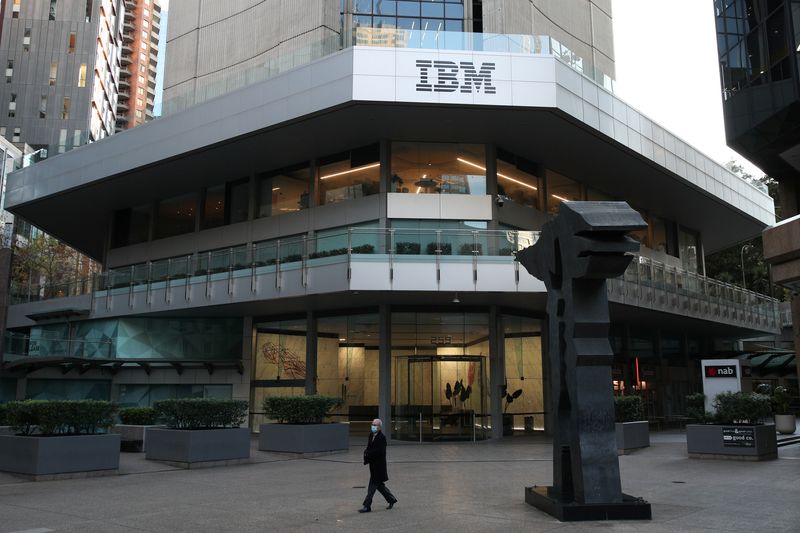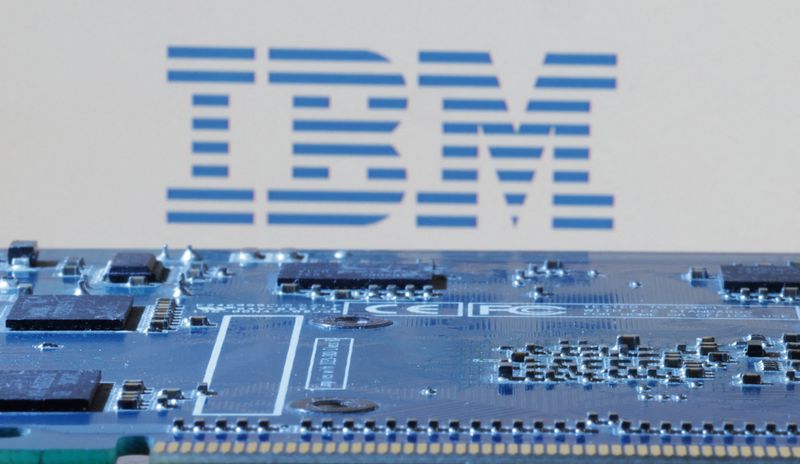By Arsheeya Bajwa
(Reuters) -International Business Machines missed analysts' estimates for third-quarter revenue on Wednesday, hurt by weakness in its consulting segment as businesses cut back on discretionary expenses, coupled with declines in the infrastructure business.
IBM (NYSE:IBM)'s shares fell about 4% in extended trading after rising more than 40% this year, as investors bet on the company's potential to benefit from generative AI through its software and consulting services.
An uncertain macroeconomic backdrop has prompted businesses to prioritize expenses on long-term consulting projects centered around AI, impacting IBM's sales from shorter-term deals.
"A pause in discretionary spending is impacting our consulting business," CEO Arvind Krishna said during a post-earnings call.
Revenue grew about 1% to $14.97 billion, missing estimates of $15.07 billion, according to data compiled by LSEG. Revenue from consulting was relatively flat in the third quarter.
The company's AI Book of Business — a combination of bookings and actual sales across various products — grew to $3 billion, up $1 billion from the second quarter.
"Many clients are looking at how to free up cost and productivity to go invest in GenAI," Chief Financial Officer James Kavanaugh told Reuters.
The book was driven by consulting, constituted of one-fifth software and four-fifths consulting in the third quarter. However, this growth is not yet reflected in the overall consulting segment.
"Client budgets are not expanding and AI consulting, rather than being additive, is cannibalizing other engagements," said Michael Ashley Schulman, chief investment officer at Running Point Capital.
Conversely, IBM's software segment recorded its biggest jump in quarterly revenue in three years, as enterprises expand cloud infrastructure to accommodate genAI tech.

Software growth has helped drive profit of $2.30 per share for the third quarter, beating analysts' average estimate of $2.23 per share, according to data compiled by LSEG.
The company's infrastructure segment, which houses IBM's mainframe, saw revenue decline 7% as the business is at the end of a three-year product cycle, when sales cyclically slump.
